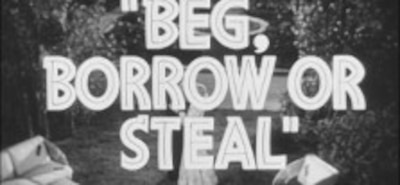Beg Borrow or Steal

Brief Synopsis
Cast & Crew
William Thiele
Frank Morgan
Florence Rice
John Beal
Janet Beecher
Herman Bing
Film Details
Technical Specs

Synopsis
Fifteen years after tourist shill Ingraham Steward has left his wife Agatha and daughter Joyce, he learns that Joyce is about to marry the wealthy Horace Miller. Although Ingraham has faithfully sent his family money and letters over the years, they know little about his life and think that he is a successful art dealer in Paris. Hoping to give Joyce a chance at a good marriage, Ingraham cables them that he wants the wedding to take place in his "chateau," but is distraught when they take him up on the offer. Desperate, Ingraham goes to a large chateau and convinces the caretaker, American Bill Cherau, to help him. When the social climbing Millers arrive with Joyce and Agatha, they are very impressed by Ingraham's aristocratic friends, all of whom are really fellow conmen, and one of whom, Clifton Summit, is an escaped convict. While Bill, who is attracted to Joyce, tries to convince her that the stodgy Horace is not for her, some of Ingraham's friends case the chateau and try to con the Millers. Ingraham successfully appeals to his friends' better natures, but Bill continues his pursuit of Joyce and proposes. Meanwhile, Lord Nigel Braemer, who actually owns the chateau, decides he is miserable bird hunting in Scotland and returns home. Bill, actually the Count de Cherau, reveals the sham to his friend Braemer, who decides that it would be fun to help by pretending to be himself. Braemer is so enthusiastic, in fact, Ingraham warns the "phony" Braemer not to overdo his part. On the day of Joyce's wedding, she finally agrees to marry Bill instead of Horace, but when Bill goes to tell Ingraham, he finds that one of Ingraham's former "clients" is there with the police, demanding his money back. Bill gives one of the chateau's paintings as a replacement, but Joyce overhears and secretly decides to go through with the wedding as planned for Ingraham's sake. When Bill finds out, he tells Ingraham, who tries to help, but just then a detective arrests Bill, thinking he is Summit. As the wedding ceremony begins, Ingraham tells everyone the truth about himself and the Millers walk out, but Joyce and Agatha are proud of him. Finally free, Joyce agrees to marry Bill, who is then revealed as the Count de Cherau, and Ingraham and his cronies are invited by Breamer to stay with him at the chateau.

Director
William Thiele
Cast
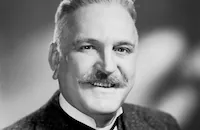
Frank Morgan
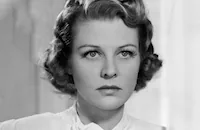
Florence Rice

John Beal

Janet Beecher
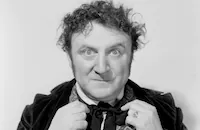
Herman Bing

Erik Rhodes

George Givot

E. E. Clive
Tom Rutherford

Cora Witherspoon

Reginald Denny

Vladimir Sokoloff
Harlan Briggs
Bert Roach

Frank Puglia

Joseph Crehan
Josephine Whittell
Egon Brecher
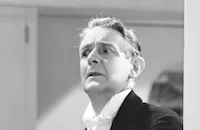
Leonard Carey
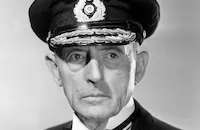
Frank Reicher
Jean Perry
Edwin Stanley
Robert Mccouedic
John Picorri

Fred Malatesta
Lowden Adams
Joseph Tozer
Alphonse Martell
Betty Worth
Dan Maxwell
Crew
Dr. William Axt
Cedric Gibbons
Leonard Lee
Harry Mcafee
Conrad A. Nervig
Marion Parsonnet
Harry Ruskin
Douglas Shearer
Frederick Stephani
Marvin Stuart
Edwin B. Willis

Film Details
Technical Specs

Articles
Beg, Borrow or Steal -
By Richard Harland Smith

Beg, Borrow or Steal -
Quotes
Trivia
Notes
The working title of the film was A Matter of Pride. Actor Erik Rhodes was borrowed from RKO for this film. The ownership of the chateau in the plot is ambiguous, as it was variously attributed to "Bill Cherau" and "Lord Braemer." This and other plot ambiguities were noted in various reviews.



